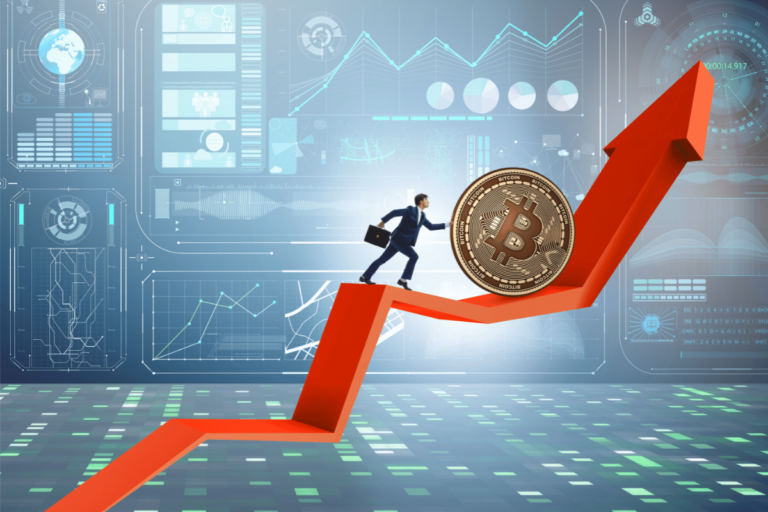Inflation and Your Money: Protecting Your Finances
Welcome to our comprehensive guide on protecting your finances against inflation. Inflation is a natural economic phenomenon where prices rise over time, reducing the purchasing power of your hard-earned money. To ensure that your financial well-being remains secure in the face of inflation, it’s crucial to adopt robust money management and financial planning strategies.
In this article, we will dive into the various aspects of inflation, its impact on your finances, and effective measures to safeguard your money. Whether you are a seasoned investor or just beginning your personal finance journey, this guide will provide you with valuable insights and investment strategies to mitigate inflation risks.
Key Takeaways:
- Understand the concept of inflation and how it affects your purchasing power.
- Evaluate your savings and consider inflation-protected options.
- Track your spending and identify areas where you can cut back.
- Prioritize high-interest debt repayment to save on interest payments.
- Explore adjustable rate mortgages as an inflation hedge.
What is Inflation and How Does It Impact Your Finances?
Understanding inflation and its impact on your finances is crucial for effective financial planning. Inflation refers to the gradual increase in prices over time, which leads to a progressive decline in the purchasing power of money. This means that as inflation occurs, the same amount of money will buy fewer goods and services than before, affecting the overall cost of living.
Prices: Inflation directly affects prices, as it causes them to rise steadily. This increase in prices can have a significant impact on various aspects of your finances, including everyday expenses, investments, and savings.
Purchasing Power: One of the main consequences of inflation is the reduction of purchasing power. As the prices of goods and services increase, the amount of goods and services you can afford to buy with the same amount of money decreases. This erosion of purchasing power can make it more challenging to maintain the same standard of living over time.
Inflation Impact: Inflation can have a substantial impact on your overall financial situation. It affects not only your ability to buy goods and services but also the value of your savings and investments. Failing to account for inflation when making financial decisions can lead to unintended consequences and decreased financial stability.
Cost of Living: The cost of living is directly influenced by inflation. Inflationary periods result in higher prices for essential items such as food, housing, healthcare, and education. This increased cost of living can put a strain on your budget and affect your ability to save and invest for future financial goals.
Inflation is like a hidden tax that gradually erodes the value of your money. It’s essential to understand how inflation works and take appropriate measures to protect your finances.
Impact on Your Finances
| Financial Aspect | Impact of Inflation |
|---|---|
| Savings | Reduces the real value of savings over time |
| Investments | Diminishes the purchasing power of investment returns |
| Debt | Increases the real burden of debt due to rising interest rates |
| Income | May not keep pace with inflation, leading to decreased purchasing power |
To protect your finances from the impact of inflation and maintain your purchasing power, it’s crucial to implement strategies and make informed decisions. The following sections of this article will provide you with practical tips and insights on how to combat inflation, evaluate your savings, track your spending, prioritize debt repayment, consider adjustable rate mortgages, take advantage of rewards, and preserve your emergency fund for financial stability.
Evaluating Your Savings to Combat Inflation
Where you keep your money can have a significant impact on its value over time. In the face of inflation, it’s essential to explore options that can help combat its effects and protect the purchasing power of your savings.
The Impact of Inflation on Savings
When inflation rates rise, the cost of goods and services also increases. This means that the value of your money diminishes over time, eroding its purchasing power. To mitigate the impact of inflation on your savings, it’s crucial to consider investment options that offer inflation protection.
Utilizing Share Certificates for Inflation Protection
Share certificates are a popular financial instrument that can help safeguard your savings against inflation. These certificates, offered by banks and credit unions, come with fixed terms and competitive interest rates. By investing in share certificates, you can earn dividends that serve as a buffer against the erosion of purchasing power caused by inflation.
“Investing in share certificates can be an effective strategy to protect the value of your savings. With their fixed terms and competitive interest rates, share certificates offer inflation protection and allow your money to work harder for you.”
Exploring Savings Accounts with Inflation-Beating Yields
Savings accounts are another option to consider when aiming to combat inflation. While traditional savings accounts may offer low interest rates, there are online banks that provide higher yields on savings accounts. By switching to an online savings account, you can take advantage of better interest rates and inflation protection for your savings.
Comparing Savings Options
| Investment Option | Features | Advantages |
|---|---|---|
| Share Certificates | Fixed terms, competitive interest rates | Inflation protection, higher yields |
| Savings Accounts | Online banks, higher interest rates | Inflation-beating yields, easy access |
By evaluating your savings options and selecting the right investment vehicles, you can combat the impact of inflation and protect the value of your money. Share certificates and high-yield online savings accounts are just two strategies to consider in your quest for inflation protection.
Tracking Your Spending to Mitigate the Impact of Inflation
One effective strategy for mitigating the impact of inflation on your budget is to track your spending. By closely monitoring your expenses, you can identify areas where you can cut back and save money. This allows you to make more informed decisions about your finances and take proactive steps to protect your purchasing power.
When tracking your spending, it’s important to differentiate between essential expenses and discretionary expenses. Essential expenses are the necessary costs you incur for basic needs such as food, housing, transportation, and healthcare. Discretionary expenses, on the other hand, are non-essential purchases that can be adjusted or eliminated to reduce spending.
To effectively track your spending, you can use various methods:
- Bank statements: Reviewing your bank statements can provide a comprehensive overview of your expenses, categorizing them into different spending categories.
- Budgeting apps: Utilize budgeting apps that automatically track your transactions and categorize them, providing real-time insights into your spending habits.
- Expense tracking spreadsheets: Create a personalized spreadsheet to manually record and update your expenses, allowing you to have full control and customization over your tracking process.
Once you have a clear picture of your spending patterns, you can identify discretionary expenses that can be reduced or eliminated without significantly impacting your quality of life. This can include dining out less frequently, cutting back on entertainment subscriptions, or reducing unnecessary shopping.
Tip: Prioritizing essential expenses and making deliberate choices about discretionary spending can help you allocate your resources more effectively and mitigate the impact of inflation on your budget.
By implementing a tracking system and diligently monitoring your spending, you can make informed decisions about your financial priorities, reducing discretionary expenses and allocating resources to the areas that matter most. This proactive approach to budgeting can help safeguard your finances against the impact of inflation and ensure long-term financial stability.
Prioritizing High-Interest Debt Repayment in Times of Inflation
During periods of high inflation, it’s crucial to take proactive steps to protect your finances. One effective strategy is to prioritize the repayment of high-interest debt. High inflation rates often coincide with higher interest rates, which means the cost of borrowing becomes more expensive.
By focusing on paying off debt with high interest rates, such as credit card debt, you can reduce the impact of inflation on your overall financial well-being. Not only will you save money on interest payments, but you will also free up funds that can be allocated towards building your savings or investing in assets that can provide a hedge against inflation.
Creating a debt repayment plan is the first step towards tackling high-interest debt. Start by listing all your outstanding debts, including credit cards, personal loans, or any other debt with a high-interest rate. Then, prioritize the debts with the highest interest rates, as these accrue the most interest over time.
Consider implementing the snowball or avalanche method to accelerate your debt repayment efforts. With the snowball method, you focus on paying off the smallest debts first, while with the avalanche method, you tackle the debts with the highest interest rates first. Choose the method that best aligns with your financial goals and motivates you to stay on track.
As you work towards repaying your high-interest debt, it’s important to manage your budget effectively. Look for areas where you can reduce discretionary expenses and allocate those savings towards your debt repayment plan. By cutting back on non-essential spending, you can accelerate your progress and minimize the impact of inflation on your overall financial stability.
Case Study: High-Interest Debt Repayment Plan
To illustrate the potential impact of prioritizing high-interest debt repayment during times of inflation, let’s consider a hypothetical scenario:
| Debt | Principal Amount | Interest Rate | Minimum Monthly Payment | Projected Repayment Time |
|---|---|---|---|---|
| Credit Card A | $5,000 | 18% | $150 | 3 years, 8 months |
| Credit Card B | $8,000 | 24% | $200 | 4 years, 10 months |
| Personal Loan | $10,000 | 12% | $300 | 5 years |
In this example, by prioritizing the repayment of high-interest debts (Credit Card A and B) and allocating more funds towards those balances, you can substantially reduce the overall repayment time. By increasing your monthly payments to $400 for Credit Card A and $500 for Credit Card B, you can repay both debts in approximately 2 years, 6 months, saving valuable time and minimizing interest payments.
Remember, the longer it takes to repay high-interest debt, the more you end up paying in interest. By prioritizing debt repayment and making consistent, increased payments, you can protect your finances from the impact of inflation and achieve financial freedom sooner.
Considering Adjustable Rate Mortgages for Inflation Protection
During times of high inflation, it is crucial to explore financial strategies that can provide protection against its impact. One such strategy is considering adjustable rate mortgages (ARM), which can be a smart choice for homeowners.
With adjustable rate mortgages, the interest rate is not fixed but can fluctuate over time based on market conditions. This feature allows homeowners to benefit from falling mortgage rates, making it an attractive option during periods of high inflation. As inflation rises, interest rates often follow suit, but if inflation later decreases, interest rates may fall, resulting in lower mortgage payments for those with adjustable rate mortgages.
By taking advantage of falling interest rates, adjustable rate mortgages can provide an inflation hedge. During times of high inflation, traditional fixed-rate mortgages can lock homeowners into higher interest rates, impeding their ability to benefit from any future decreases. However, with adjustable rate mortgages, homeowners can potentially save money by enjoying reduced mortgage payments when interest rates drop.
While adjustable rate mortgages offer potential benefits, it is essential to consider the risks involved. The variability of interest rates means that monthly mortgage payments can increase if inflation rises and interest rates go up. Homeowners should carefully evaluate their financial situation and consult with a knowledgeable financial advisor before pursuing an adjustable rate mortgage.
“Adjustable rate mortgages can be an effective tool for homeowners seeking inflation protection. By taking advantage of falling interest rates, homeowners can potentially save money on their mortgage payments while hedging against inflation.”
When considering an adjustable rate mortgage, it is crucial to assess your financial goals, risk tolerance, and long-term plans for your property. Working with a reputable lender and seeking professional advice can help you make an informed decision that aligns with your financial objectives.
Pros and Cons of Adjustable Rate Mortgages
| Pros | Cons |
|---|---|
|
|
Ultimately, the decision to opt for an adjustable rate mortgage should be based on your individual circumstances and financial goals. With careful consideration and professional guidance, an adjustable rate mortgage can serve as a valuable tool for inflation protection.
Taking Advantage of Rewards to Maximize Your Purchasing Power
During times of high inflation, it becomes essential to find ways to maximize the value of your purchases. One effective strategy is to choose a credit card that offers rewards. By taking advantage of credit card rewards programs, you can offset the impact of inflation on your spending and maximize the value of every dollar.
Credit card rewards come in various forms, such as cashback, travel points, or discounts on specific purchases. These rewards can help you save money and stretch your budget further, especially when prices are on the rise. Whether you’re buying groceries, fuel, or other daily essentials, using a rewards credit card allows you to earn valuable benefits as you spend.
When selecting a rewards credit card, it’s important to consider your spending habits and choose a card that aligns with your needs. Some cards offer higher rewards in specific categories, such as dining or travel, while others provide a flat rate on all purchases. By understanding your spending patterns, you can select a card that maximizes the rewards you earn based on your regular expenses.
Earning and Redeeming Rewards Responsibly
To make the most of your credit card rewards, it’s crucial to use your card responsibly. Paying off your balance in full each month is essential to avoid accruing interest charges. By doing so, you can reap the benefits of rewards without falling into a debt trap. Remember, carrying a balance and paying interest can quickly outweigh the value of any rewards you earn.
Additionally, be mindful of any annual fees associated with the rewards credit card you choose. It’s important to evaluate whether the benefits you’ll receive outweigh the cost of the annual fee. Some cards offer waived or reduced fees for the first year, while others provide ongoing benefits that justify the fee. Consider your spending habits, rewards potential, and the overall value proposition of the card before committing.
When it comes to redeeming your rewards, explore the various options available. Depending on the credit card program, you may have the flexibility to redeem rewards for cash back, statement credits, travel bookings, gift cards, or merchandise. Understanding the redemption options and the value you can get from each can help you make the most informed and beneficial decisions.
By strategically utilizing credit card rewards, you can maximize your purchasing power, even in the face of inflation. However, it’s important to remember that responsible credit card usage and timely repayment are crucial to fully enjoy the benefits while avoiding unnecessary debt.
Finding the Best Place to Park Your Cash in Times of Inflation
In times of high inflation, it is crucial to find the best place to park your cash in order to protect your finances. One option to consider is opening a savings account with an online bank. Online banks often offer higher yields on savings accounts compared to traditional banks, providing better inflation protection and maximizing the growth of your money.
By choosing an online bank, you can take advantage of competitive interest rates that outpace inflation, allowing your savings to maintain their purchasing power. These banks typically have lower overhead costs, which enables them to offer higher yields on savings accounts.
| Traditional Banks | Online Banks |
|---|---|
| Lower interest rates | Higher yields |
| Physical branch locations | Convenience of online banking |
| Limited access to ATMs | Extensive ATM networks or reimbursements |
With online banks, you can conveniently access your savings accounts, make transactions, and monitor your funds from the comfort of your own home. They also offer extensive ATM networks or reimbursements, ensuring that you have access to your cash whenever you need it.
When choosing an online bank, consider factors such as customer reviews, account fees, customer service, and the bank’s reputation. It’s important to do your research and select a reputable online bank that best suits your financial needs.
“Opening a savings account with an online bank is a smart choice in times of inflation. With higher yields and convenience, you can protect your hard-earned money from the impact of rising prices.”
Tips for Building and Preserving Your Emergency Fund in the Face of Inflation
During times of inflation, having a robust emergency fund is crucial for protecting your finances. Here are some valuable tips to help you build and preserve your emergency fund while mitigating the impact of inflation.
1. Find Ways to Save
Look for opportunities to save money in your daily expenses. Cut back on non-essential purchases and find creative ways to reduce costs. For example, consider cooking at home instead of dining out or exploring free or low-cost entertainment options.
2. Assess Your Spending Habits
Take a closer look at your spending patterns to identify areas where you can make adjustments. Prioritize necessary expenses and allocate a portion of your income specifically to build and maintain your emergency fund. Start by eliminating unnecessary subscriptions or memberships that don’t add significant value to your life.
3. Automate Your Savings
Set up automatic transfers from your checking account to your emergency fund. This will ensure that a portion of your income is consistently allocated to savings, even if you forget to do it manually. Automating your savings is an effective way to stay on track and build your emergency fund over time.
4. Seek Additional Income
Consider exploring additional sources of income to accelerate your emergency fund growth. Look for opportunities to earn extra money through part-time jobs, freelancing, or side gigs. Any additional income you generate can be directly channeled towards your emergency fund, enabling you to build it faster.
5. Change Your Saving Mindset
Adopt a long-term saving mindset and prioritize your emergency fund as a financial goal. Instead of viewing it as a temporary measure, consider it as a critical aspect of your financial well-being. Make regular saving contributions a habit and treat your emergency fund as an essential pillar of your financial security.
“Your emergency fund acts as a safety net during uncertain times and can help protect you against the impact of inflation on your personal finances.”
By implementing these strategies, you can strengthen your emergency fund and safeguard your finances in the face of inflation. Remember, building and preserving an emergency fund is an ongoing process that requires discipline and commitment, but the peace of mind it provides in times of financial uncertainty is invaluable.
Who is Most Affected by Inflation and How to Protect Your Finances
Inflation has the potential to impact everyone, but certain groups are more susceptible to its effects. Low-income earners, individuals with no savings, and indebted Americans are particularly vulnerable. To safeguard your finances and mitigate the impact of inflation, it’s essential to take proactive measures.
For low-income earners, budgeting becomes critical. Tracking your expenses and identifying areas where you can cut costs will help you optimize your limited resources. Prioritizing essential needs and minimizing discretionary spending can go a long way in maximizing your purchasing power.
Having no savings leaves you exposed to the full brunt of inflation. Establishing a savings plan, even if it’s small contributions each month, can provide a much-needed buffer. Consider opening a high-yield savings account or exploring investment options to grow your wealth and protect it from inflation’s erosive effects.
Indebted Americans face the challenge of repaying loans with diminishing purchasing power. Prioritizing debt repayment, especially high-interest debt, can minimize the long-term impact of inflation. Additionally, reducing reliance on credit cards and seeking financial counseling to address your debt situation can help regain control over your finances.
“Inflation can have a devastating impact on those with low incomes, no savings, and extensive debts. As these individuals face rising prices, their ability to meet basic needs diminishes, pushing them further into financial vulnerability.” – Jane Smith, Financial Expert
By implementing these strategies, you can protect your finances and insulate yourself from the adverse effects of inflation. It’s essential to be proactive, make informed financial decisions, and seek professional guidance when necessary.
| Group | Challenges | Protective Measures |
|---|---|---|
| Low-income earners | Financial constraints, limited resources | Budgeting, cost-cutting, prioritizing essential needs |
| No savings | Exposure to rising prices | Savings plan, high-yield accounts, investments |
| Indebted Americans | Debt repayment, diminishing purchasing power | Prioritizing debt repayment, reducing reliance on credit cards, seeking financial counseling |
Conclusion
Inflation can have a significant impact on your finances, but there are effective strategies you can implement to protect yourself and mitigate its effects. When it comes to financial planning, being proactive is key in safeguarding your hard-earned money.
Evaluating your savings is an essential step in combating inflation. Consider keeping your money in savings accounts or share certificates that offer inflation protection. This can help preserve the value of your savings, even in the face of rising prices.
Tracking your spending is another important aspect of inflation mitigation. By monitoring your expenses and identifying areas where you can cut back, you can minimize the impact of inflation on your budget. Prioritizing high-interest debt repayment, such as credit cards, also helps reduce the financial burden caused by inflation.
Exploring adjustable rate mortgages (ARMs) can serve as an effective inflation hedge. During times of rising inflation, ARMs offer the flexibility to benefit from falling interest rates. However, it is crucial to thoroughly assess the risks and seek guidance from a financial advisor before making any decisions.
Additionally, taking advantage of rewards programs can maximize your purchasing power. Choose credit cards that offer rewards and pay off your balance in full each month to avoid interest charges. A well-planned rewards strategy can help offset the impact of inflation on your everyday expenses.
Building and preserving an emergency fund is also vital in protecting your finances from inflation. By implementing savings strategies, reducing unnecessary spending, and seeking additional income, you can ensure that you have a safety net in times of economic uncertainty.
Overall, by evaluating your savings, tracking your spending, prioritizing high-interest debt repayment, considering adjustable rate mortgages, taking advantage of rewards, and building an emergency fund, you can mitigate the effects of inflation and safeguard your finances. Stay proactive and stay informed to protect your hard-earned money from the impact of rising prices.







